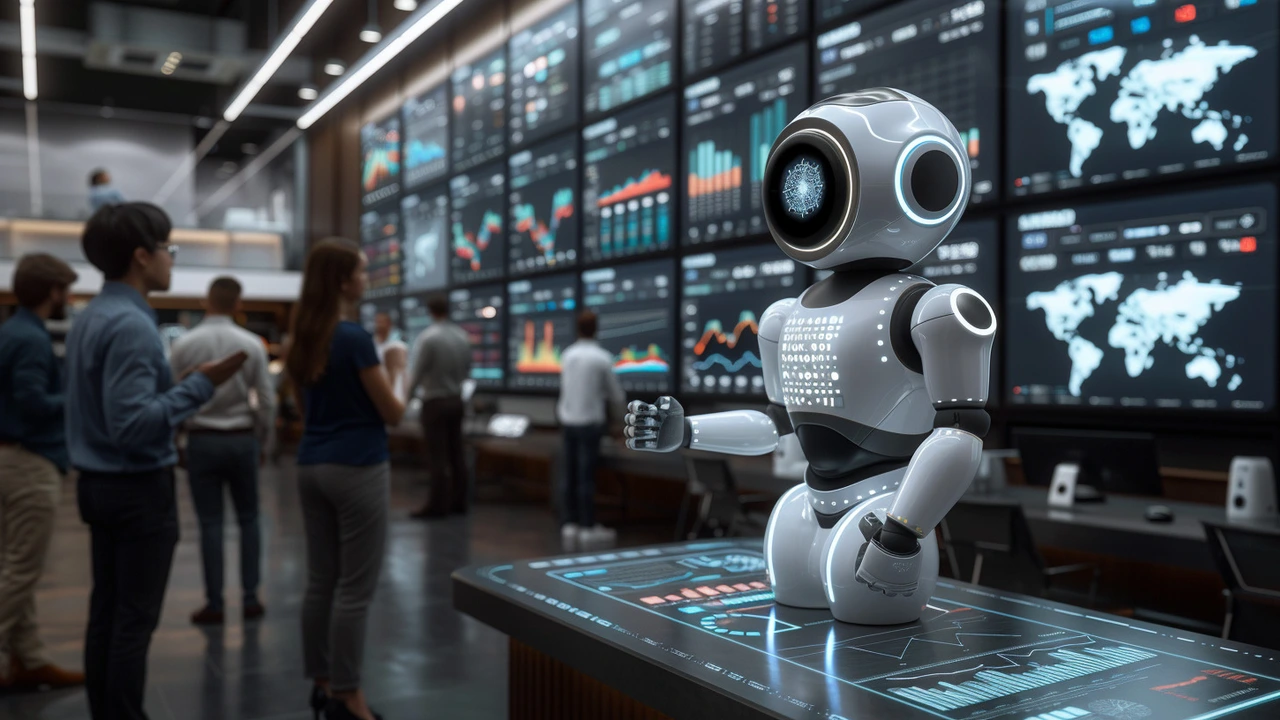The Dawn of Artificial Intelligence in Metropolis Construction
Who would've thought that the buzzword of the 21st-century 'Artificial Intelligence' would transcend typical boundaries and find use in urban planning? With my corgi, Bella, snuggled up by my side and my tabby cat, Whiskers, purring away, I find myself marvelling at the advancements in technology and its impact on urban planning. Being a tech enthusiast myself, it's just awe-inspiring to note how AI is revolutionising urban planning.
Frankly speaking, urban planning is no easy feat. If you've ever played SimCity, you'd realise the gamut of things to consider while designing a city. It's a mind-boggling task that often got me wondering if Bella and Whiskers would do a better job! However, thanks to AI, the perplexity of urban planning has been greatly reduced. Now, crucial factors like housing, transport, amenities, green spaces and the like can be optimised in the planning process. This is not just about building smart cities but about making our cities smarter. Akin to how Bella instinctively knows to fetch the ball, AI can instinctively identify patterns in data to facilitate better urban planning strategies.
Navigating the Cityscape with Machine Learning
Gone are the days when urban planning was solely about brainstorming sessions and drawing up blueprint designs. With AI and machine learning, an urban planner's toolkit is now empowered with data-driven decision-making potential. Just as how I rely on my pets' behaviour to understand their needs, urban planners can now depend on AI to understand a city's needs.
Machine Learning, a subset of AI, is particularly beneficial in analysing patterns and trends. Boasting a prowess that can outshine even Whiskers' knack for finding his favourite toy, Machine Learning algorithms can sieve through vast data sets of population patterns, transport usage, weather patterns and more. From this analysis, it generates predictions and insights that can be used to guide urban planning. This is the brilliant leap from traditional blueprint designs to intelligence-led masterplans. It's as profound a shift as the leap from dial-up internet to super-fast broadband!
How Urban Planning Benefits from Smart Technologies
You'd be surprised by the sheer number of ways in which AI can assist in urban planning. Much like how having Bella and Whiskers at home increases the joy quotient, using AI in urban planning increases efficiency, accuracy, and intelligence. The potential of AI-driven strategies in urban planning goes beyond just constructing buildings. It is about creating sustainable living spaces – it's not just the physical structures, but the very souls of the cities we're talking about.
Imagine a city where traffic congestion is a thing of the past, where green spaces aren't just a part of the whole but are intricately woven into the city's fabric, where the placement of amenities is so bang-on that the city seems to be designed, keeping you specifically in mind. That's the dream that AI-powered urban planning brings within our reach. Now, isn't that something you'd definitely want to be a part of?
The Promising Path Ahead for AI in Urban Planning
Living in Sydney, one of the most vibrant and advanced cities in the world, I have always been captivated by its smart integration of urban spaces with natural elements. It's like Bella and Whiskers living in harmony – they have their differences, but they are aware of each other's space and needs. This balance, I believe, is what smart cities should aim for.
Studies predict that by 2050, about 70% of the global population will be urban dwellers. With such an immense urban shift, the role of AI in city planning becomes that much more important. Just like how having Bella around helps me keep fit with the constant running around, AI in urban planning can make our cities healthier, happier and safer places to live.
The potential of AI to transform urban planning isn't just an imaginative scenario anymore. It's here, it's real, and it's transforming our urban landscapes at an accelerating pace. Sure, there might be bumps along the way, much like Bella and Whiskers' occasional squabbles, but the dream of smarter and happier cities is closer than ever. And that's a future that this pet-loving, tech-enthusiast blogger can't wait to see!
In the grand scheme of things, AI's involvement in urban planning has barely scratched the surface. But as with everything else, it's a journey that begins with a single step. And given how rapidly technology evolves, I feel like we've stepped onto a high-speed escalator, heading straight towards smarter, more sustainable urban spaces.

